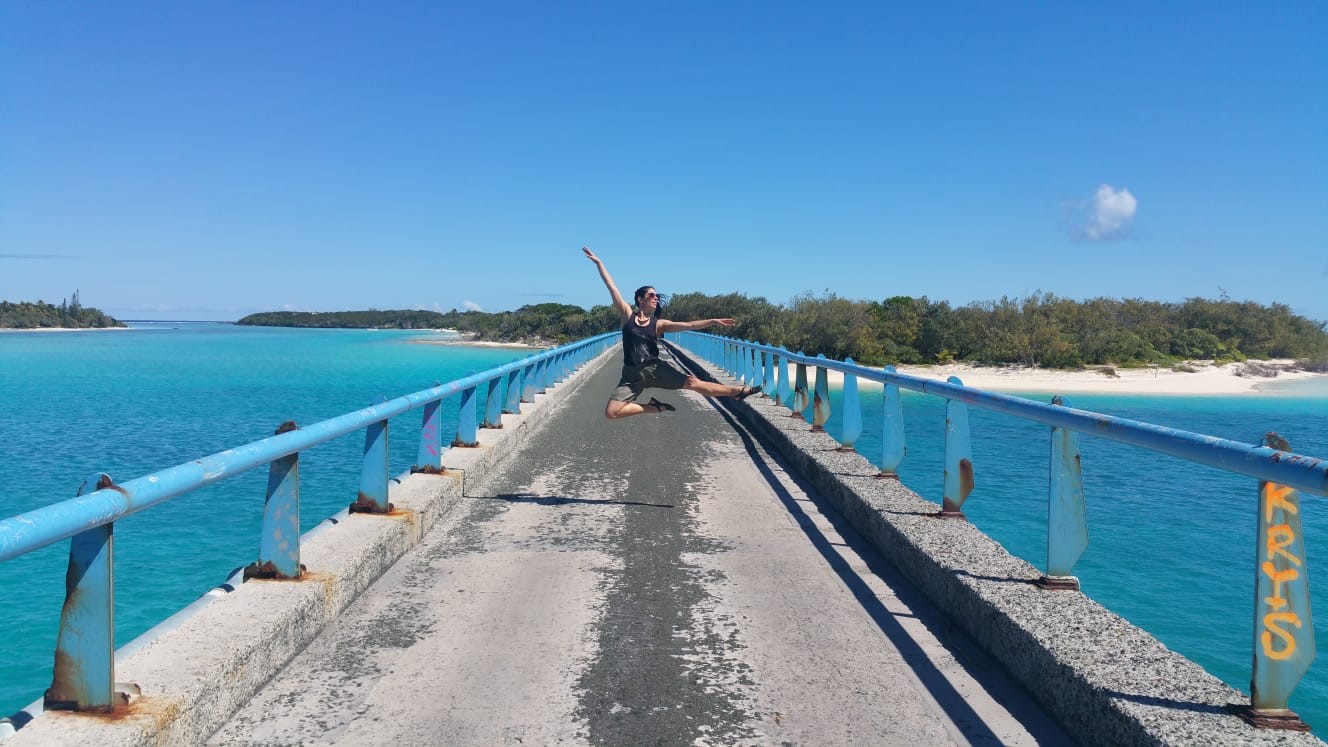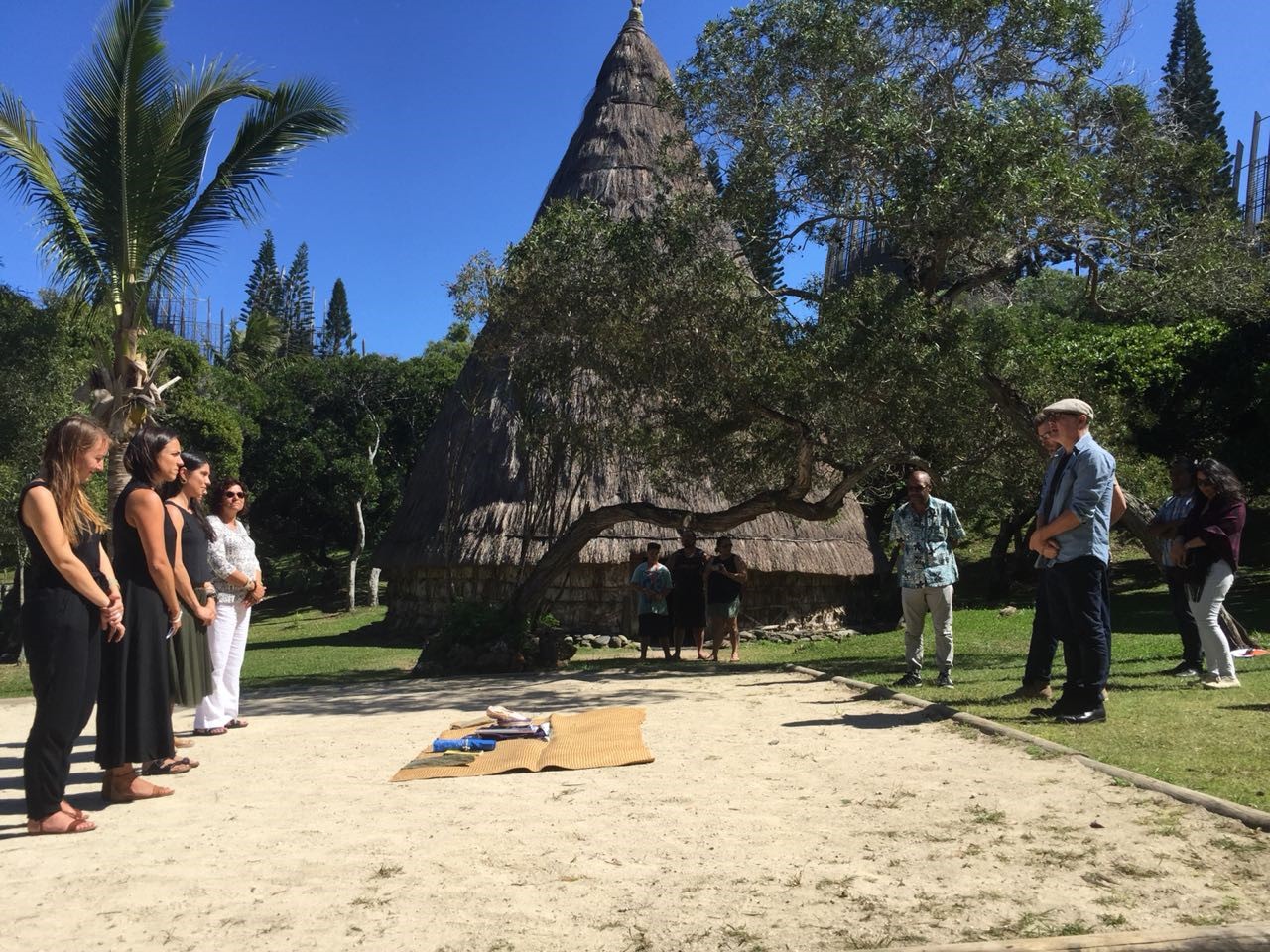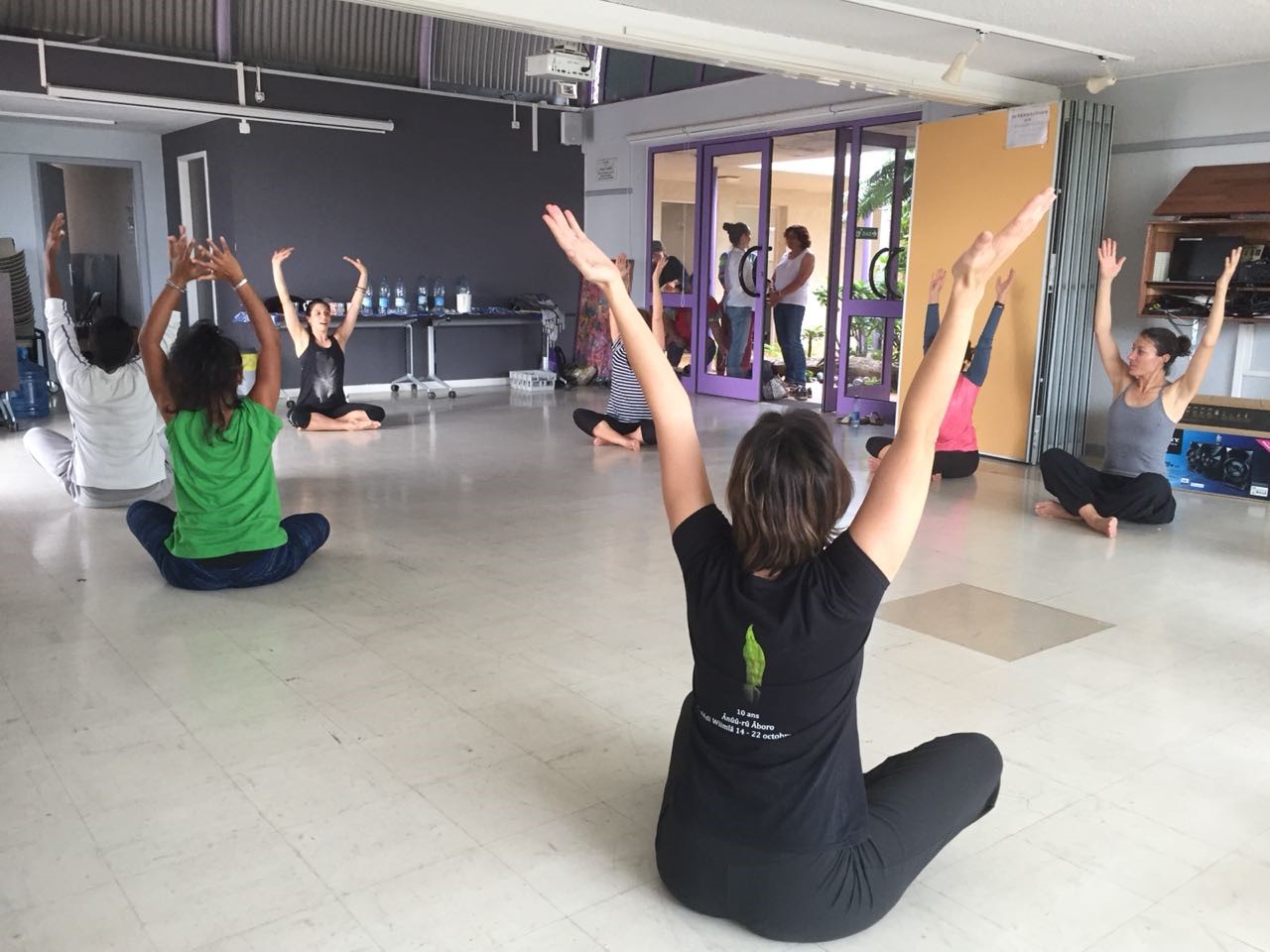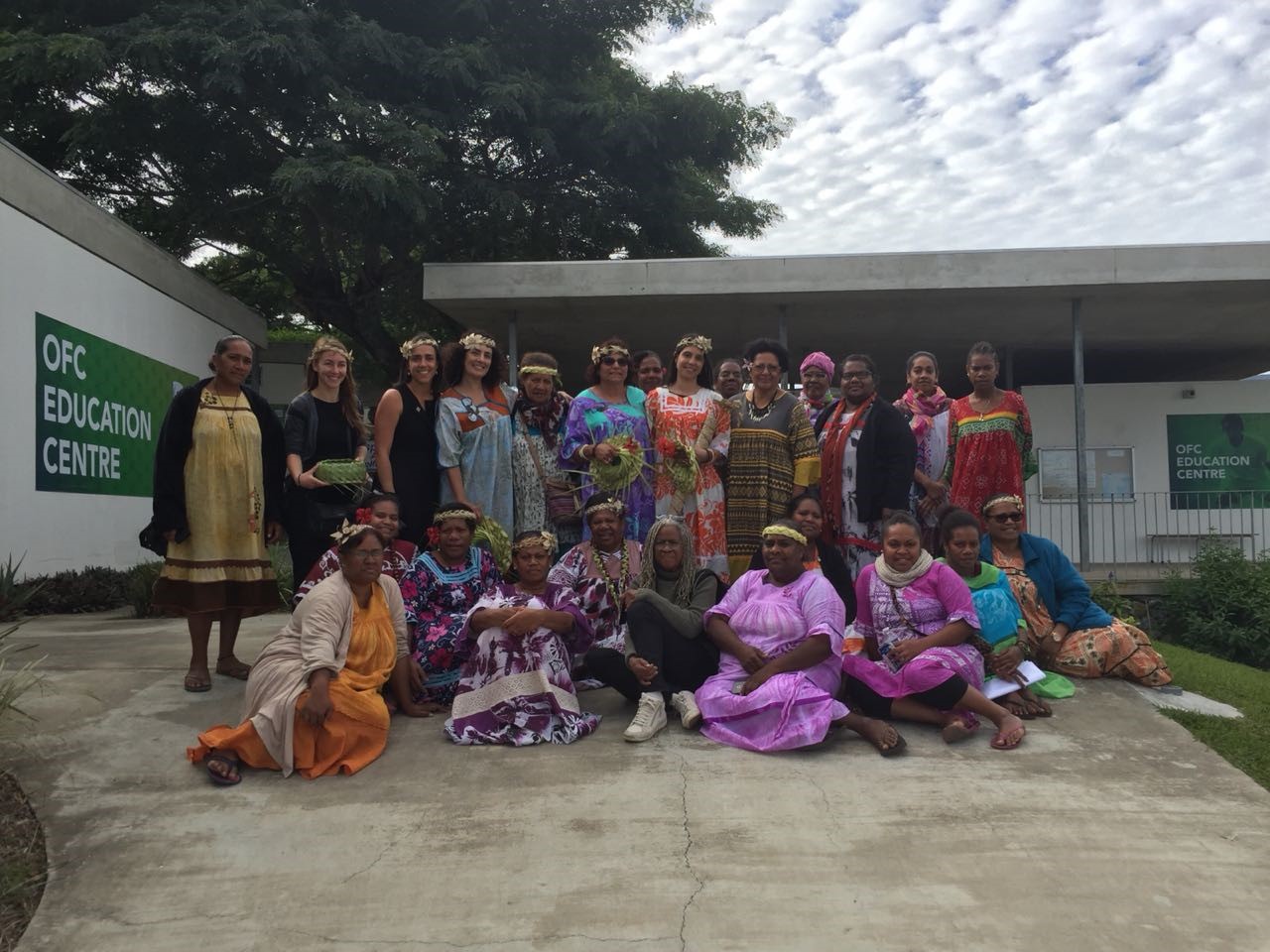Ella Havelka, the first Indigenous dancer to join The Australian Ballet, and the titular character of the 2015 film ‘Ella’, visited New Caledonia 5-10 August 2018 for NAIDOC 2018 at the invitation of the Australian Consulate-General in Noumea and with the support of NAIDOC 2018 sponsor Qantas.

Ella on the island of Ouvea.
One of Australia’s great cultural institutions, the Australian Ballet is amongst the best dance companies in the world. Since 2012, its effort to move away from the traditionally dominant archetype ballerina has seen the company actively seek dancers from different backgrounds. This is thanks to the efforts of artistic director, David McAllister AM, who has been at the forefront of promoting diversity within Australian ballet.
Dana Moran, The Australian Ballet’s External Relations, Government and Strategic Communications Manager, explained this with pride, as we waited for our flight to the island of Ouvea. Dana was accompanying Ella Havelka, the first Indigenous ballerina to join The Australian Ballet, and her mother, Janna Havelka, for a tour around New Caledonia as our guests for NAIDOC 2018.


Ella participating in a ‘welcome to country’ ceremony at the Tjibaou Cultural Centre in Noumea, and conducting a dance workshop in Pouembout.
Ella and her mother are both the living embodiment of this year’s NAIDOC theme – ‘because of her, we can’. Ella grew up in Dubbo, in rural New South Wales, and is a descendant of the Wiradjuri people. From a young age, Ella, with the strong support of her mother (who was a single parent), fought stereotypes within the different communities she inhabited to pursue her dream of becoming a ballerina. Through her career, first with Bangarra Dance Theatre and then The Australian Ballet, Ella has always had to deal with being different. Backed by McAllister and through her sheer hard work, she made the transition from contemporary back to classical dance, overcoming injury and questions about her suitability.
And it’s thanks to McAllister, and his vision for his dancers and The Australian Ballet, that Ella was able to visit New Caledonia, taking precious time out of her training schedule to share her story. It was a story that resonated in New Caledonia, a French territory that’s facing important questions: whether or not to become independent from France, and in any case, how to build a common and inclusive destiny for its multicultural society, particularly for its Indigenous Kanak people.
As in our own Indigenous culture, dance has a strong place in Kanak cultural heritage and is actively used to engage youth. So during her visit, we arranged for Ella to visit schools in the less developed and rural parts of New Caledonia – where the population is majority Kanak – as well as to interact in Noumea with nearly 400 school children from all backgrounds in New Caledonia. We screened the film about her life, ‘Ella’, as an introduction to her story, and watched as the audience gave her standing ovations when she emerged to answer questions. Ella also conducted dance workshops – teaching her own choreographed blend of contemporary and classical dance – and met with Indigenous and non-indigenous female leaders and artists to discuss their experiences.

Ella with Kanak women from around New Caledonia at a workshop on women’s rights in Noumea.
During discussions with school children in the islands and in the north of New Caledonia, Ella talked about the loneliness she’s faced over the years, and her questioning of herself when she was finally selected to join The Australian Ballet – was it just because she was Indigenous? After struggling with the label of being the first Indigenous ballerina, she decided to embrace it – as a way to promote her Indigenous culture and roots and her merited success. And that’s exactly what she did during her time in New Caledonia – sharing the richness of Australian culture but also inspiring those who, like her younger self, are struggling to find their place.
Ella’s mother, Janna, had an equally inspiring story to tell. During a workshop with female Kanak leaders from around New Caledonia, Janna talked about Australia’s Stolen Generations, of which her mother and aunt were a part. She talked about being stuck between the two worlds, and being seen as ‘black on the outside, but white on the inside’. The women spoke of their own experience with colonialism and the fight for Indigenous rights and recognition of Kanak culture in New Caledonia.
At the final screening of Ella’s film at the Tjibaou Cultural Centre in Noumea, created to showcase and promote Indigenous culture, we took the opportunity before a packed house to present our hosts with a framed commemorative copy of the National Apology and talk about the steps Australia is taking to ‘close the gap’. It was a fitting conclusion to the week
Ella’s visit rang true to the theme of NAIDOC 2018 – ‘because of her, we can’. The visit resonated hope and inspiration, as we showcased a great young Indigenous Australian success story to New Caledonians.
We thank Ella and her strong, supportive mother Janna for taking this trip into the heart of New Caledonia and taking us with them: because of them, we could.
